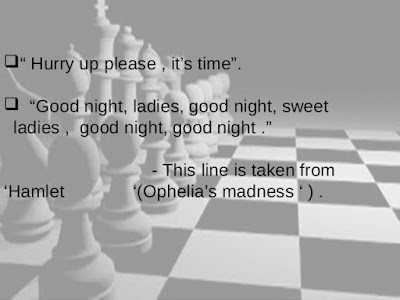Jess Walter’s 2001 novel Over Tumbled Graves
describes the attempts of police detectives in Spokane, WA to track down and
catch the perpetrator of what seems to be a set of serial murders.
The main
protagonists are Alan Dupree and Caroline Mabry, and they’re only a couple of
the law enforcement people who become involved in the investigations. Many personal dramas and traumas are part of
the character’s lives. It’s an
interesting, moving, and absorbing story of fallible people who try to do the
right thing.
These notes
apply to the 2001 trade paperback edition by ReganBooks. Page number references, therefore, are to
this printing.
When I came
across the book in the library stacks, the title prompted me to pull the book
out and give it a deeper consideration.
It was only when I got home and settled in to begin reading that I read
the epigraph and entered a new mental realm of expectation.
The
epigraph is from T S Eliot’s The Waste Land, the iconic 1922
“postmodern” reflection on the emptiness of modern society, the failure of
human dreams, and the desolation of selling yourself cheaply, viewed through a
prism that contains facets of then-popular culture, post-WWI ennui, and
Arthurian Legend. The novel’s epigraph reads,
“In
the faint moonlight, the grass is singing
“Over
the tumbled graves.”
These lines are from the poem’s last section. The graves mentioned in these lines are outside
the Grail Chapel, which itself is empty and impotent.
The novel’s
narrative is divided into five parts, with the same titles that Eliot used for
his poem:
1. The Burial of the
Dead
2. A Game of Chess
3. The Fire Sermon
4. Death by Water
5. What the Thunder
Said
It’s up to
you, the reader, to decide how well these names apply the the parts of the
story contained in each section.
When I
noticed the name given to the book’s Part I, in light of the epigraph, I kept
reading with pen and paper nearby and an eye/ear to what might prove to be
Eliotian cadences. These fragments I
have shored against my ruins, as somebody once said.
The
investigation is sparked by the discovery of a girl’s mutilated body. She’s discovered during the search for a
drowned small-time drug dealer. As more
bodies are found, it appears that prostitutes who frequent a certain run-down
district are the casualties. One of the
girls who may or may not be missing is nicknamed Pills. This name, of course, reminded me of the lines in Part II of The
Waste Land in which one of the unnamed characters talks about taking an
abortifacient: “It’s them pills I took,
to bring it off, she said.”
The first
sentence of Part II of the novel echoes the first line of Part II of the poem.
·
Eliot: “The chair she sat in, like a burnished
throne”
·
Walter: “The chair she sat in was a throne of
leather and dark-stained oak ….”
One of the
locales that Dupree and Mabry investigate is an unnamed bar where their
presence disturbs the regulars and the bartender, who quotes a (to-me) familiar
line from the end of Part II of the poem, “Hurry
up please, it’s time.” And, sure
enough, when the patrons are named, they are Bill, May, and Lou, just as in the
poem: “Goonight Bill. Goonight Lou.
Goonight May. Goonight. Ta
ta. Goonight.”
The Spokane
River, with its eddying pools of trash (page 151) is not dissimilar to Eliot’s
descriptions of the Thames “sweating oil and tar.”
In chapter
30, the criminal profiler Blanton states that “These bodies are his tools, his
chess pieces” (page 191). This of course
is reminiscent of lines 137-138 of the poem, “And we shall play a game of
chess, / Pressing lidless eyes and waiting for a knock upon the door.” Eliot’s characters, though world-weary,
aren’t expecting that knock to bring news of another prostitute murder, as
happens in the novel.
About the
only thing about this novel which disappointed me is that the Eliot/Waste
Land references peter out over the rest of the novel. Other than continuing to use Eliot’s
poem-division titles for the rest of the sections of the book, this
poetry-fiend couldn’t detect more “Eliot Easter Eggs.” I was expecting the final confrontations
between good and evil to take place outdoors, interrupted by “a damp gust,
bringing rain.”
Or at least
a reference to thunder, or to peace (the poem’s conclusion).
Instead, I
was left with a sense of unfulfilled possibilities, kind of like the
disappointment seen in this angel’s eyes as he looks at Gawain before the
ruined Chapel.
So, as a
crime/detection novel, Over Tumbled Graves is a fine
example of story, construction, and heroes deserving compassion. As material for an English paper, it sadly
tapers off, with me wondering why the author didn’t persevere to the end.



















No comments:
Post a Comment